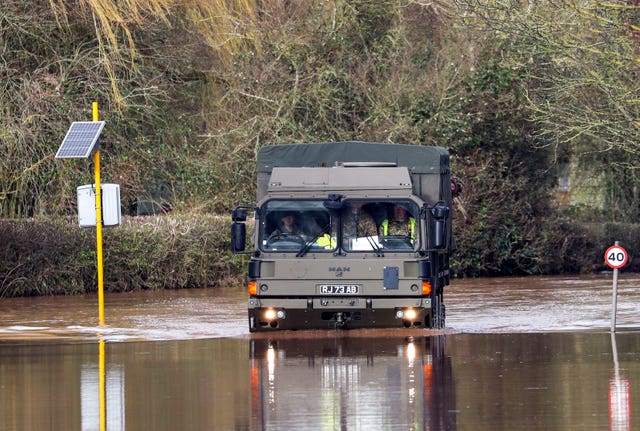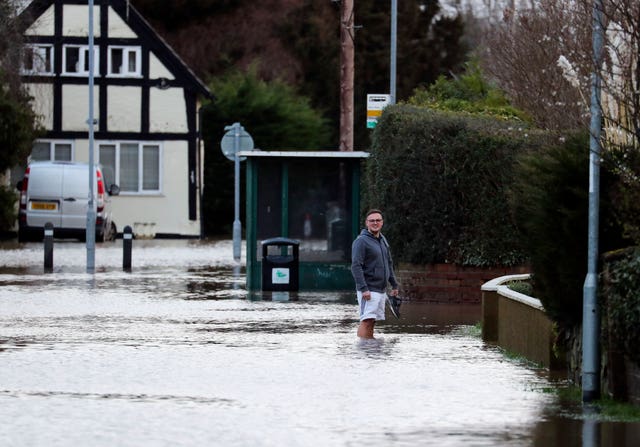Flood-hit residents in the Wye and Severn valleys are being urged to remain vigilant despite river levels falling below recent peaks, which included the highest ever reading in Hereford.
A multi-agency briefing held on Thursday heard emergency planners may have to re-think “models for what unprecedented looks like” following widespread flooding in Shropshire, Worcestershire and Herefordshire.
Asked to comment on forecasts for levels on the Wye and Severn on Friday, Environment Agency deputy director Dafydd Evans said: “Our current models are predicting that those levels will be significantly less than what we have seen from Storm Dennis.”

“That’s why we are still asking people to be vigilant – there will be water on roads and water around properties.
“Unfortunately the forecast into next week from the Met Office is that it still remains unsettled, so we will have to see into next week how that goes.

“We are constantly looking ahead three to five days to ensure we get that balance right between what we put into response and what we put into recovery.”
Explaining what had contributed to record flooding levels, Mr Evans continued: “Part of what we saw with Storm Dennis that was such an issue is that heavy rain was really quite widespread over the whole of West Mercia – and when you get that heavy rainfall not just in the headwaters but all through the catchments that’s what really led to those very, very high record levels.”
The emergency service response for #flooding across West Mercia is still ongoing ⚠️ We will continue to warn and inform the public, listen to the voices of our communities and where the concerns are across the region #FloodResponse #StormDennis pic.twitter.com/weY5nCJbTX
— West Mercia Police (@WMerciaPolice) February 20, 2020
The chief executive of Herefordshire Council, Alistair Neill, thanked volunteers for their fantastic work alongside key agencies, including the local authority, as more than 300 homes were affected by the floods.
Urging those involved in tackling flooding, including central Government, to listen to the experts in formulating policy, Mr Neill said: “We’re not going to be dealing with this sensibly if we simply respond to emergencies when they happen every single year, when we could actually plan differently for them.
As part of our recovery operations, council staff are out in the community today offering advice and support to businesses and residents. Our team over at Highley visited cottages by the river to offer support. If you’ve been affected by the floods visit https://t.co/FYZKHgfXgJ pic.twitter.com/hVIJ3MfX0L
— Shropshire Council (@ShropCouncil) February 20, 2020
“What we know is that it’s a multi-faceted approach – it’s not just simply about building flood defences… the use of the land becomes important, dredging becomes important.
“I think listening to the experts is where we need to really need to sit down and do a lot of work.
“If our economies depend very heavily on the infrastructure and if the infrastructure is damaged so greatly by passing passing phases of weather systems, we need government to focus on that.”






